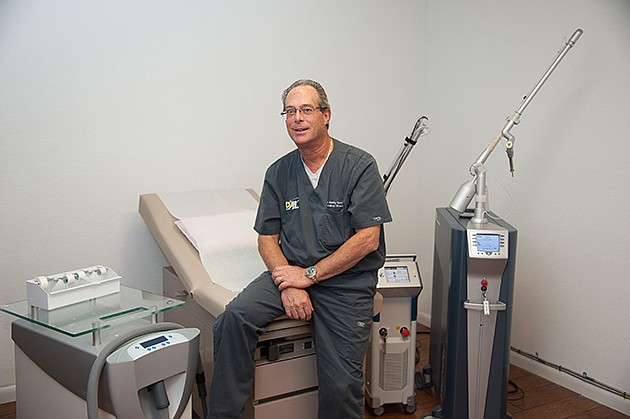- November 23, 2024
-
-
Loading

Loading

An abundance of older residents puts Sarasota and Charlotte counties on a short list of prime sales counties in a Florida medical marijuana industry projected to reach $1.6 billion in sales by 2020.
How easily Florida reaches that figure hinges somewhat on regulatory issues state legislators must address. A big unknown: whether lawmakers or state health regulators will make marijuana easily accessible to the medically needy and allow for substantial growth in cannabis clinics, cultivators, dispensaries, product forms and delivery options.
Lawmakers also must decide whether to put sales taxes or other fees on cannabis sales. Prospects of more money in state and local coffers may lead reluctant lawmakers to embrace a robust expansion of the new industry. But fears that fast growth will create public safety burdens could move them the other way.
Then there's the uncertainty of whether President-elect Donald Trump will try to reverse what market analysts say is steady progress by states to bypass a nearly 80-year-old federal prohibition.
One cannabis consulting group scheduled seminars for marijuana entrepreneurs in Fort Lauderdale, Orlando and Tampa for early December but called them off after Trump's election. “Uncertainties in the political landscape have prompted Lakewood, Colo.-based Strainwise Consulting and the National Cannabis Chamber of Commerce to cancel an upcoming series of 'Ask the Cannabis Experts' conferences in Florida,” the company says in a media release.
But if Florida can set up a system that allows the market to meet demand, the state can ride a legal cannabis sales expansion that nationally is projected to have 28% compound annual growth into 2020, says Troy Dayton, CEO of California cannabis market research and equity firm Arcview Group.
“This creates an opportunity for small- and medium-size entrepreneurs and investors,” Dayton says in an interview with the Business Observer.
Arcview specializes in analyzing markets and funding cannabis enterprises in the growing number of states that have legalized adult use of cannabis or allowed medical marijuana use, or both. It has raised investments of more than $88 million for 135 businesses, says Dayton.
Big opportunities
Florida's local government leaders have also added uncertainty to the picture. Local autonomy could create significant roadblocks for entrepreneurs, analysts say.
So far, dozens of counties and cities, including the cities of Sarasota and Venice, have enacted moratoriums on marijuana clinics. Officials in those localities, however, have given no indication they want to block the will of the 71% of voters who approved Amendment 2 Nov. 8.
Officials in Venice and other cities want zoning, land-use and licensing issues settled before putting out a welcome mat, Venice Mayor John Holic says. “All of us are trying to make sure we have our ducks in a row,” says Holic.
But the moratoriums, which run from six to nine months or more, serve as a high wall to cannabis businesses eager to set up shop with full-strength medical marijuana becoming legal Jan. 3.
Dr. Barry Gordon saw it that way. The Ohio transplant and 30-year emergency medicine physician moved just outside Venice to open his Compassionate Cannabis Clinic in the Lakeview Office Park.
“I feel very comfortable in using what quite frankly is a much safer product than opioids,” Gordon says. Gordon, who has been operating a telehealth and tattoo removal service, says he expects treatments with full-strength medicinal marijuana will be more beneficial to patients than the low THC form of cannabis Florida legislators authorized in 2014 for a handful of chronic ailments.
The clinic's opening has already spurred interest in providing product to it and the ones that follow, says Patrick DeLuca, the clinic's executive director. “We got a call from a real estate company about a group of investors looking to open a dispensary in Sarasota,” he says. “We will sit down with them.”
Gordon's clinic is in a region that a new Florida profile compiled by Arcview and New Frontier Data projects will be among the state's most active medical cannabis markets. The reason: Residents at least 65 years old make up 34.6% of Sarasota County residents and 38.4% of residents in neighboring Charlotte County.
“That community seems to be suffering from many of the conditions that are approved under the state's emerging medical marijuana program,” chief among them chronic pain from conditions such as arthritis, says John Kagia, executive vice president of analytics for New Frontier.
Money issues
But while business opportunities may be plentiful, capital is not — at least for now.
Sarasota's Sabal Palm Bank can't participate while federal authorities deem cannabis illegal, says Neil McCurry Jr., president and CEO. “We're a federally chartered institution,” McCurry says. “There is a strong expectation that we abide by federal rules.”
In Naples, the leader of Encore Bank says Encore is in a “wait-and-see” mode. “I don't see a reason to take a risk for our shareholders in a business we may have to get back out of,” Encore CEO Tom Ray says.
Dayton, with Arcview, expects bankers will come around once they see the “outsized opportunities” the new sector presents. But for now, their reluctance means “more opportunity for the rest of us,” Dayton says.
Adds Dayton: “These very barriers are what is making it an exciting opportunity for pioneering investors.”
who gets it?
Amendment 2, which passed in Florida Nov. 8, allows medical cannabis to be provided as treatment for patients with conditions that include:
Epilepsy
Glaucoma
HIV
AIDS
Post-traumatic stress disorder (PTSD)
Amyotrophic lateral sclerosis (ALS)
Crohn's disease
Parkinson's disease
Multiple sclerosis
Amendment 2 also allows licensed physicians to certify patients for medical cannabis use after diagnosing them with some “other debilitating medical conditions of the same kind or class as or comparable to those enumerated.”
Source: 2016 Leal Cannabis Market: Florida Profile